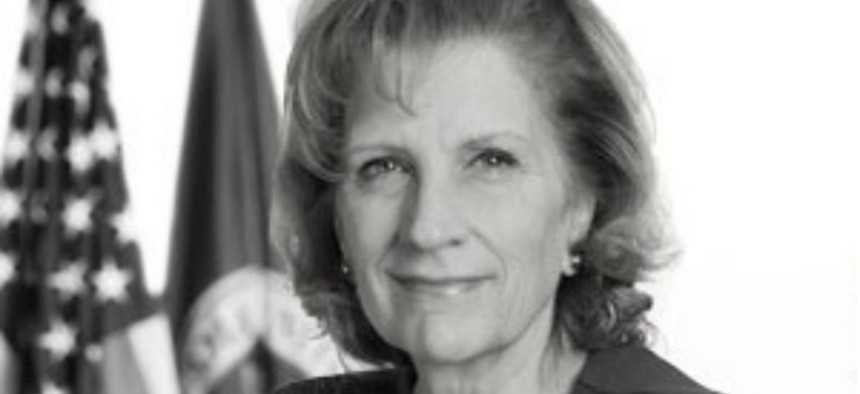
Sara Ratcliff OPM photo
8 Leadership Questions for Sara Ratcliff
The executive director of the Federal Chief Human Capital Officers Council shares some hard-won lessons in leadership.
This is the first in a series of Q&As with notable leaders across government where we explore what it takes to succeed in federal service. If you have a suggestion for a future candidate, please email it to webmaster@govexec.com with "Leader" in the subject line.
Sara Ratcliff has tackled some of government’s thorniest personnel challenges in her long career. In the early 1990s, she played a key role in reshaping the Defense Department’s civilian workforce following the end of the Cold War. More recently, she managed the Defense Civilian Intelligence Personnel System for more than 60,000 people and helped create the department’s cyber personnel system. Today, as executive director of the Federal Chief Human Capital Officers Council, she is deeply involved in the Trump administration’s efforts to modernize human resources management across government. She recently shared with Government Executive the following hard-won lessons on management and leadership.
What motivates you to get up every morning and go to work?
Starbucks Venti Misto.
What’s your favorite interview question when hiring?
You’ve just been given one of your boss’s top priorities but you don’t agree with the position he has taken on the topic. It’s a dumb idea. What do you do?
Also, what do you think is more important as a leader?
- Vision or results?
- Ability to influence or to make a decision?
- Financial solvency or innovation?
- Resilience or flexibility?
Who was your most effective boss, and what made him or her stand out?
Representative Frank Wolf of Virginia. He was clear about what outcomes he expected and gave me amazing latitude and autonomy to accomplish his priorities. He gave me advice I’ve always included in my mentoring moments: “Don’t tell your boss ‘I left a message.’ Keep calling til you get an answer.”
What was your biggest failure that didn’t crush you but made you a better leader?
I worked for a fantastic congressman handling his most important portfolio but I was too valuable to be promoted. I gave up that job to go work for an embattled congressman thinking that my ability to get things done would carry me to success in the new assignment. The embattled congressman lost his reelection effort. I was disappointed I was unable to turn around his fortunes, but it gave me job experience as senior manager that postured me for better assignments in the new administration.
At the Defense Department, in the early 90s, I was tasked with a major overhaul of HR service delivery. We had a deputy secretary from General Motors. He had collapsed overhead organizations from GM’s major divisions (payroll, personnel, benefits, acquisitions, etc). I was point for the personnel portion of that big effort. I considered it a failure when I was only able to create a central policy office and wasn’t able to consolidate personnel operations. That policy office, now 27 years old, is still standing. It has over 500 employees and is one of the most impressive HR organizations in government. It leads federal HR with innovations and tests of new policy concepts—the Defense Civilian Personnel Advisory Service—DCPAS.
It takes resilience to keep going at a tough task. You may not get everything you originally set out to achieve, but you should stay focused on the goal you’re chasing and don’t get sidetracked.
What do you know now that you wish someone had told you before you entered government?
Stay in the agency’s mission area. The administrative roles are critical for smooth agency management. But government organizations have a specific mission to accomplish. When awards and recognition arise, it’s for what they accomplished, not necessarily how they did it. There are certainly more opportunities for advancement on the mission side of an agency than in the administrative support roles.
You’ve been sentenced to spend the next year alone on a desert island with a single book on leadership. What book do you choose?
The Defining Decade: Why Your Twenties Matter-And How to Make the Most of Them Now by Meg Jay.
What is the most important skill a leader should have?
An ability to set a vision and a plan of action for how to get there. There’s a saying that there are 3 kinds of people: thinkers, doers and closers. The government is blessed with many brilliant thinkers and extremely capable doers, but closing is not as common. Being that leader who can get a project over the finish line is the most important skill a leader can have. It honors the work of the team.
What is the most important skill a manager should have?
Good communication. Don’t put off the tough conversations. Bad news doesn’t get better with time. By the same token, be careful that every conversation isn’t one more opportunity to preach.






